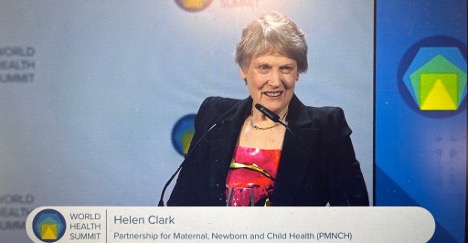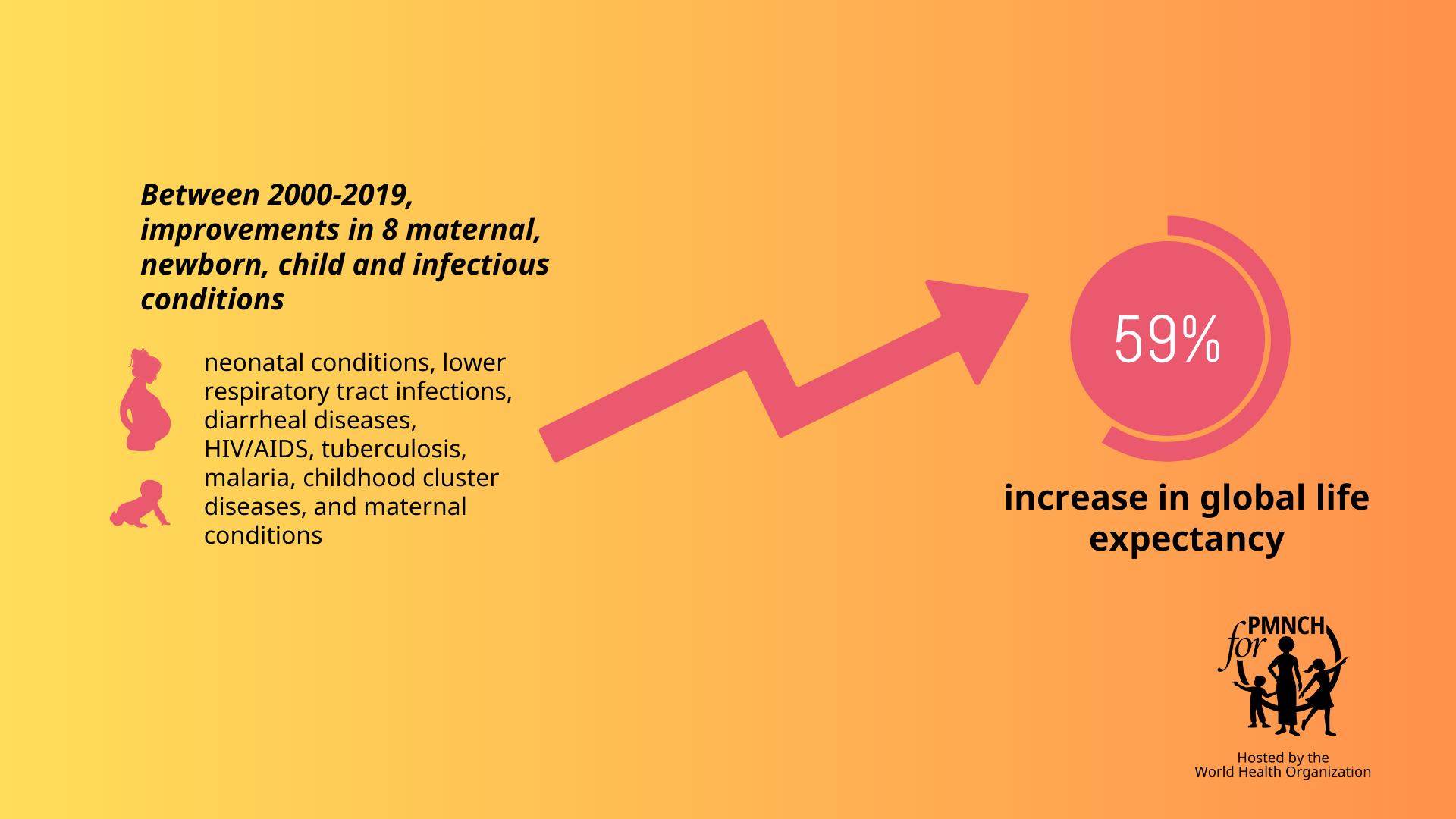A crowded room at the World Health Summit saw the launch on the 15th October 2024 of the Global health 2050: the road to halving premature death by mid-century report developed by the Lancet Commission on Investing in Health.
This new report, developed in collaboration with several PMNCH Board members, represents a key pathway to improving human welfare by investing in health. It outlines the possibility of reducing by 50% the probability of premature deaths i.e., mortality before age 70 years – by 2050, framed as the 50-by-50 goal. The key messages of the report can be found here.
To reach this goal, improved investments are required in 15 key priority and high-impact conditions, with 8 pertaining to maternal, neonatal and child conditions and infectious diseases, namely: neonatal conditions, lower respiratory tract infections, diarrheal diseases, HIV/AIDS, tuberculosis, malaria, childhood cluster diseases, and maternal conditions.
During the event, Rt Hon Helen Clark, PMNCH Board Chair, highlighted the importance of the Global health 2050 for maternal, newborn and child health. The report’s findings highlight that investing in maternal, neonatal, child and infectious conditions, especially in high mortality countries, can support the achievement of the grand convergence, i.e. the major reduction of the gap of probability of premature deaths between countries.

Between 2000-2019, improvements in eight maternal, neonatal, child and infectious conditions accounted for a 59% increase in global life expectancy, and in sub-Saharan Africa they accounted for 92% increase in life expectancy.

The report will be critical to ensure prioritization and advance evidence-based investments for reproductive, maternal, newborn and child health. With growing conflicts, increasing impacts of climate change and rising anti-rights movement around the world, the health of women and children is significantly under threat in today’s world. ‘’After almost a decade of missteps, there is a renewed engagement and commitment to a more radical turn in global health’’, mentioned Dr Richard Horton, Editor in Chief of The Lancet during the launch event at the World Health Summit. The need for strong investments across the continuum has never been more urgent.

.png?sfvrsn=6d0e27cd_1)



